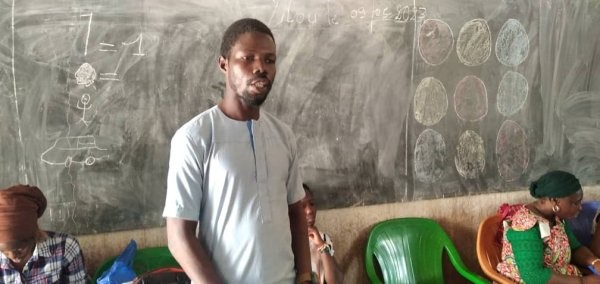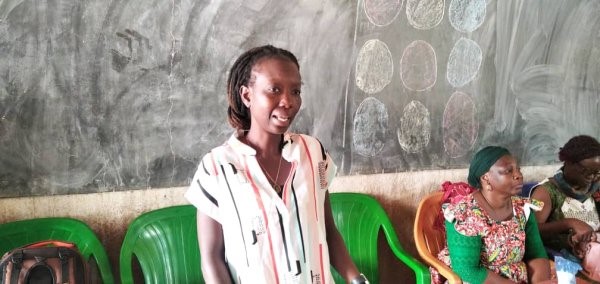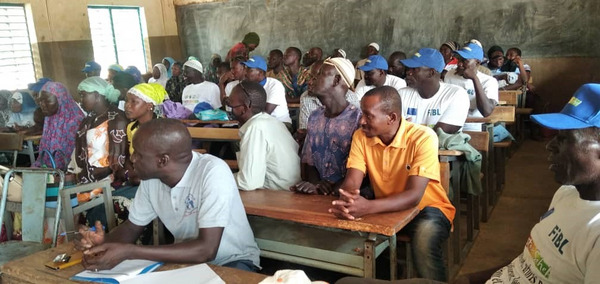The project "Synergistic use and protection of natural resources for rural livelihoods through the systematic integration of crops, shrubs and livestock in the Sahel" (SustainSahel) is an action-research project funded by the European Union and implemented by a consortium of 18 partners including the Confédération Paysanne du Faso (CPF). Starting in 2020, the project is being implemented over a 5-year period in Burkina Faso, Mali and Senegal. In Burkina Faso, the project is being implemented on two sites, each grouping several villages: the Yilou site and the Saria site.
Its aim is to improve the resilience and intensification potential of smallholder agricultural production systems in the face of climate change, through evolutionary innovations based on the integration of crop and livestock management systems (CAB).
As part of the project's implementation, innovation platforms have been set up to encourage exchanges between producers and the project team on the technologies implemented, and to host dissemination days in the farming environment.
The dissemination day held on May 9 at Yilou in the commune of Guibaré brought together members of the innovation platform and relay producers, as well as members of the project implementation consortium: the Confédération Paysanne du Faso, the Forum Africain des Services de Conseil Agricole (AFAAS), the Institut de l'Environnement et de Recherches Agricoles (INERA) and the Université Nazi Boni de Bobo Dioulasso (UNB). The day provided an opportunity to share research results on the Crop, Tree and Cattle (CAB) technologies. Recommendations were made to producers for better adoption of the technologies and improved household resilience.
One of the studies focused on the effect of mulching on sorghum growth and yield, as well as on water infiltration. This study was carried out by doctoral student Bessibié Bazongo. This mulching can be done with the biomass of trees such as shea, neem, caïlcédrat and other shrubs such as Piliostigma reticulatum and Guiera senegalensis. After an on-station trial, it emerged that neem biomass mineralizes very quickly and is not well suited to maintaining soil moisture, unlike that of the other woody species mentioned above. The doctoral student came to the preliminary conclusion that mulching promotes water infiltration, mitigates the effects of drought pockets and consequently improves sorghum growth and yield.
In response to the insufficient number of shrubs and trees in the fields noted by growers, Mireille Fatoumata Yé, PhD student at Nazi BONI University, suggested increasing their numbers through planting. To this end, she presented the growers present at the dissemination day with a study on the technique of seed collection and nursery plant production, to enable them to increase the number of shrubs and trees in their fields. She suggested species such as Piliostigma reticulatum, Gliricidia sepium and Faidherbia albida for their great capacity to improve crop productivity.
Linda Traoré, a doctoral student at INERA, presented some of the results of her research into the preference of animals for certain fodder woods, as well as a study into animal health and fattening. The first study showed that Bombax costatum is highly appreciated by animals, as are Khaya senegalensis, Pterocarpus erinaceus, Ziziphus mauritiana and Ficus sycomorus. A fattening trial to enhance the value of these woody plants in rations is currently underway in the Saria zone, and is planned for the Yilou zone next year. As far as animal health is concerned, gastrointestinal parasites in small ruminants represent the main constraint for farmers. August is a period of heavy infestation. She therefore advises farmers to treat their animals at this time with products recommended by health officers, especially goats, which are most often neglected and become sources of parasite propagation in pastures.
Producers are committed to implementing the following recommendations
To say the least, the relay growers and members of the innovation platform followed the doctoral students' presentations with great interest. At the end of the dissemination day, they pledged to implement the recommendations to improve their production. "Through their presentations, we came up with ideas for improving our agriculture and livestock farming. At the level of the innovation platform, we have planned a meeting to exchange ideas and see how we can disseminate what we have learned," confided Richard Ouédraogo, president of the Yilou innovation platform.
Seydou Éric Ouédraogo, known as "Eric le paysan", a trainer-animator with the Confédération paysanne du Faso, emphasized that this dissemination day is essential for the project. It enables producers to exchange information on technologies that can help them improve their production. "Each doctoral student presented the results obtained during the project. The studies are carried out with the relay growers, so that they can implement the technologies developed by the PhD students. For example, the growers use physostigma for mulching. But the PhD students have shown us that it's possible to mulch with cauliflower, neem or shea leaves", he points out.
Written by: Ouattara Obi, Confédération Paysanne of Faso, Burkina Faso
Further information
Weblinks
Cpf-bf.org:
CPF - The Peasant Confederation of Faso








 tap and then scroll down to the Add to Home Screen command.
tap and then scroll down to the Add to Home Screen command.